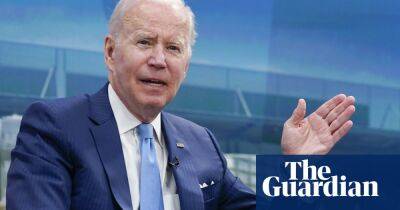Sunak to face calls for living costs help as budget deficit lower than forecast
The chancellor is expected to come under renewed pressure to offer a larger financial package of support to low income families suffering from the cost of living crisis after the public spending deficit in April came in lower than expected.
With the cabinet understood to be concerned about the government’s falling poll ratings as the cost of living crisis escalates, the government borrowed £18.6bn last month – lower than forecast and down by £5.6bn from a year ago according to Office for National Statistics figures.
The reduction in the government’s borrowing potentially hands Rishi Sunak further funds to ease the cost of living crisis, which has hit the living standards of those on low incomes the hardest.
However, the improvement in borrowing figures masked weaker than expected tax receipts in April, revealing the impact of Britain’s slowing economy on the exchequer.
Central government tax receipts of £70.2bn came in below a forecast by the Treasury’s independent forecaster, the Office for Budget Responsibility (OBR), of £72.3bn.
The Treasury’s income was also flattered by one-off items that are unlikely to be repeated as a possible recession looms. Local authorities returned a £2.3bn surplus, larger than the £1.5bn anticipated by the OBR, and public corporations reported running a balanced budget, rather than a £3.7bn deficit.
A survey of private sector activity this month found economic growth “slowed to a crawl” after a slump in the services sector.
The S&P Global/Cips flash composite purchasing managers’ index (PMI), which gives a snapshot of business orders and sales, plummeted from 58.2 in April to 51.8 in May, much lower than the 56.5 forecast by City economists.
Manufacturing output continued to grow modestly in May,
Read more on theguardian.com





















